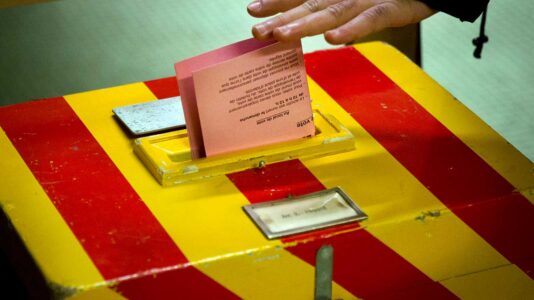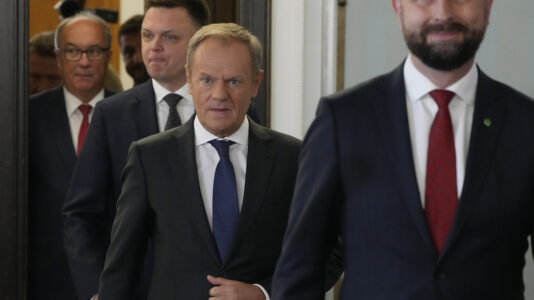Thousands of fighting-age Ukrainian men are exploiting a loophole in the country’s martial law and marrying disabled women to avoid being sent to the frontline — and intermediaries are making big money by facilitating sham marriages.
An investigation by Ukrainian outlet NGL Media dug deep into the practice that is becoming increasingly more common across the wartorn country as men continue to find elaborative methods to evade mobilization and flee the country.
The platform, which describes itself as an independent anticorruption center, immersed itself in the world of Facebook and Telegram groups where men post marriage proposals, disabled women offer marriage for a price, and intermediaries seek to connect couples for a cut.
Fake marriages are not criminally punishable in Ukraine and so the scheme is completely legal, the site explains, although those seeking to facilitate such arrangements for financial benefit are on shaky ground.
The social media groups offering such opportunities are not subtle. NGL Media found several groups titled “Fake Marriage,” “Fake Marriage Odesa” and “Dating Kyiv” where adverts are posted regularly.
The disability of a potential spouse is an important factor in such an arrangement as it creates a loophole within the mobilization scheme. Those who are a close relative of someone with a disability can receive a deferral from military duty and are even allowed to cross the border to Europe with their disabled dependant.
Several other loopholes also exist including the enrollment — on paper, at least — of university education and sham divorces where the father of a child makes an uncontested claim for sole custody to evade conscription.
But for others, the payment of around €3,000 will usually be sufficient to marry a disabled woman and achieve the same result.
NGL Media conducted its own operation, attempting to marry off one of its journalists to see how the scheme worked and posted an advertisement on several of the social media groups offering such services. It was soon contacted by an intermediary, a transgender woman called Margarita Belova, who provided photos of several potential candidates for marriage.
Later, when the journalist asked Belova for a comment about her involvement in the practice, she replied: “I wouldn’t say that I’m doing it that much. I am contacted by women with disabilities and men, and I help them, just pass on contacts, bring them together.
“Of course, I do it for money. I’m not going to do it for free… I introduce them, and then they make arrangements with each other, get married. That’s where my involvement stops,” she added.
“In my experience, out of 100 cases of servicemen who apply for discharge for family reasons, 95 cases use that topic, i.e., if their wife, their parents or their wife’s parents have a disability,” Yevhen Filipets, a lawyer consulted by the media outlet, explained.
“To get an exemption, it is enough to have such a marriage.”
Those trying to game the system for financial benefit, however, are risking prosecution and there are several cases of middlemen and women being convicted for facilitating such arrangements.
For the newlyweds themselves, however, it is perfectly safe.
“In fact, it is almost impossible to prove the marriage is fake; it is possible only through a court decision. And one of the spouses has the right to go to court to recognize such a marriage as fake. Will he or she apply in these circumstances? I don’t think so. (…) Ukrainian people are very resourceful,” added Filipets.






